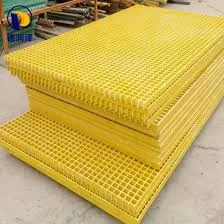
-
 Afrikaans
Afrikaans -
 Albanian
Albanian -
 Amharic
Amharic -
 Arabic
Arabic -
 Armenian
Armenian -
 Azerbaijani
Azerbaijani -
 Basque
Basque -
 Belarusian
Belarusian -
 Bengali
Bengali -
 Bosnian
Bosnian -
 Bulgarian
Bulgarian -
 Catalan
Catalan -
 Cebuano
Cebuano -
 China
China -
 China (Taiwan)
China (Taiwan) -
 Corsican
Corsican -
 Croatian
Croatian -
 Czech
Czech -
 Danish
Danish -
 Dutch
Dutch -
 English
English -
 Esperanto
Esperanto -
 Estonian
Estonian -
 Finnish
Finnish -
 French
French -
 Frisian
Frisian -
 Galician
Galician -
 Georgian
Georgian -
 German
German -
 Greek
Greek -
 Gujarati
Gujarati -
 Haitian Creole
Haitian Creole -
 hausa
hausa -
 hawaiian
hawaiian -
 Hebrew
Hebrew -
 Hindi
Hindi -
 Miao
Miao -
 Hungarian
Hungarian -
 Icelandic
Icelandic -
 igbo
igbo -
 Indonesian
Indonesian -
 irish
irish -
 Italian
Italian -
 Japanese
Japanese -
 Javanese
Javanese -
 Kannada
Kannada -
 kazakh
kazakh -
 Khmer
Khmer -
 Rwandese
Rwandese -
 Korean
Korean -
 Kurdish
Kurdish -
 Kyrgyz
Kyrgyz -
 Lao
Lao -
 Latin
Latin -
 Latvian
Latvian -
 Lithuanian
Lithuanian -
 Luxembourgish
Luxembourgish -
 Macedonian
Macedonian -
 Malgashi
Malgashi -
 Malay
Malay -
 Malayalam
Malayalam -
 Maltese
Maltese -
 Maori
Maori -
 Marathi
Marathi -
 Mongolian
Mongolian -
 Myanmar
Myanmar -
 Nepali
Nepali -
 Norwegian
Norwegian -
 Norwegian
Norwegian -
 Occitan
Occitan -
 Pashto
Pashto -
 Persian
Persian -
 Polish
Polish -
 Portuguese
Portuguese -
 Punjabi
Punjabi -
 Romanian
Romanian -
 Russian
Russian -
 Samoan
Samoan -
 Scottish Gaelic
Scottish Gaelic -
 Serbian
Serbian -
 Sesotho
Sesotho -
 Shona
Shona -
 Sindhi
Sindhi -
 Sinhala
Sinhala -
 Slovak
Slovak -
 Slovenian
Slovenian -
 Somali
Somali -
 Spanish
Spanish -
 Sundanese
Sundanese -
 Swahili
Swahili -
 Swedish
Swedish -
 Tagalog
Tagalog -
 Tajik
Tajik -
 Tamil
Tamil -
 Tatar
Tatar -
 Telugu
Telugu -
 Thai
Thai -
 Turkish
Turkish -
 Turkmen
Turkmen -
 Ukrainian
Ukrainian -
 Urdu
Urdu -
 Uighur
Uighur -
 Uzbek
Uzbek -
 Vietnamese
Vietnamese -
 Welsh
Welsh -
 Bantu
Bantu -
 Yiddish
Yiddish -
 Yoruba
Yoruba -
 Zulu
Zulu
fiberglass settler
The Importance of Fiberglass Settlers in Various Industries
In recent years, the demand for efficient and effective separation technologies has risen, prompting many industries to turn to fiberglass settlers as a solution. These innovative devices have become increasingly essential in sectors such as water treatment, oil and gas, and food processing. The term fiberglass settler refers to a separation unit made primarily from fiberglass-reinforced plastic. This material is renowned for its durability, lightweight nature, and resistance to corrosion, making it an ideal choice for applications where exposure to harsh chemicals or varying environmental conditions is a concern.
Fiberglass settlers serve a crucial function in the sedimentation process, where solids are separated from liquids. Typically, the structure of a fiberglass settler includes a series of inclined plates or tubes that enhance the efficiency of the settling process. As the mixture flows through the settler, gravitational forces enable the solid particles to drift downward, ultimately settling at the bottom for removal. This process significantly reduces the amount of solids in wastewater, making it easier and more cost-effective for treatment before discharge or further processing.
One of the primary advantages of fiberglass settlers is their resistance to chemical corrosion. Conventional settlers made from metals or other materials may degrade over time when exposed to aggressive chemicals. In contrast, fiberglass settlers can withstand such exposure, extending their lifespan and reducing maintenance costs. This resistance is particularly beneficial in industries like oil and gas, where the presence of corrosive agents is common due to the extraction and processing of hydrocarbons. The application of fiberglass settlers in these sectors not only enhances operational efficiency but also promotes sustainability by minimizing the environmental impact of waste disposal.
In addition to their robustness, fiberglass settlers are lightweight and easier to install than traditional counterparts. This characteristic allows for reduced transportation and installation costs. Companies can save significant resources by opting for fiberglass settlers over heavier materials. The versatility of fiberglass also means these settlers can be manufactured in various shapes and sizes to fit specific operational needs, allowing for customization in design and capacity.
fiberglass settler

Another key aspect of fiberglass settlers is their contribution to water treatment processes. With increasing concerns about water quality and availability, industries are focusing on sustainable and efficient ways to treat wastewater. Fiberglass settlers play a pivotal role in removing solid contaminants from water, thereby improving treatment outcomes. By ensuring that the water released into the environment meets regulatory standards, organizations can mitigate the risk of water pollution and promote public health.
The food processing industry also benefits from the use of fiberglass settlers. During the production of various food items, it is essential to separate solid substances from liquids, such as oils and fats from wastewater generated during processing. Using fiberglass settlers in this context ensures that the process is efficient and hygienic, thereby maintaining product quality and adhering to food safety regulations.
Moreover, the ease of cleaning and maintenance associated with fiberglass setters makes them attractive options for industries that prioritize efficiency and compliance. The smooth, non-porous surfaces of fiberglass prevent the buildup of contaminants, simplifying the cleaning process and reducing downtime during maintenance activities.
In conclusion, fiberglass settlers are transforming separation processes across multiple industries by offering a reliable, effective, and economical solution. Their resistance to corrosion, lightweight nature, customizable design, and contribution to sustainable practices make them an ideal choice for businesses aiming to improve their operational efficiency while minimizing environmental impact. As industries continue to seek innovative solutions to meet regulatory demands and enhance productivity, the role of fiberglass settlers is expected to grow, making them an invaluable asset in contemporary industrial practices.









